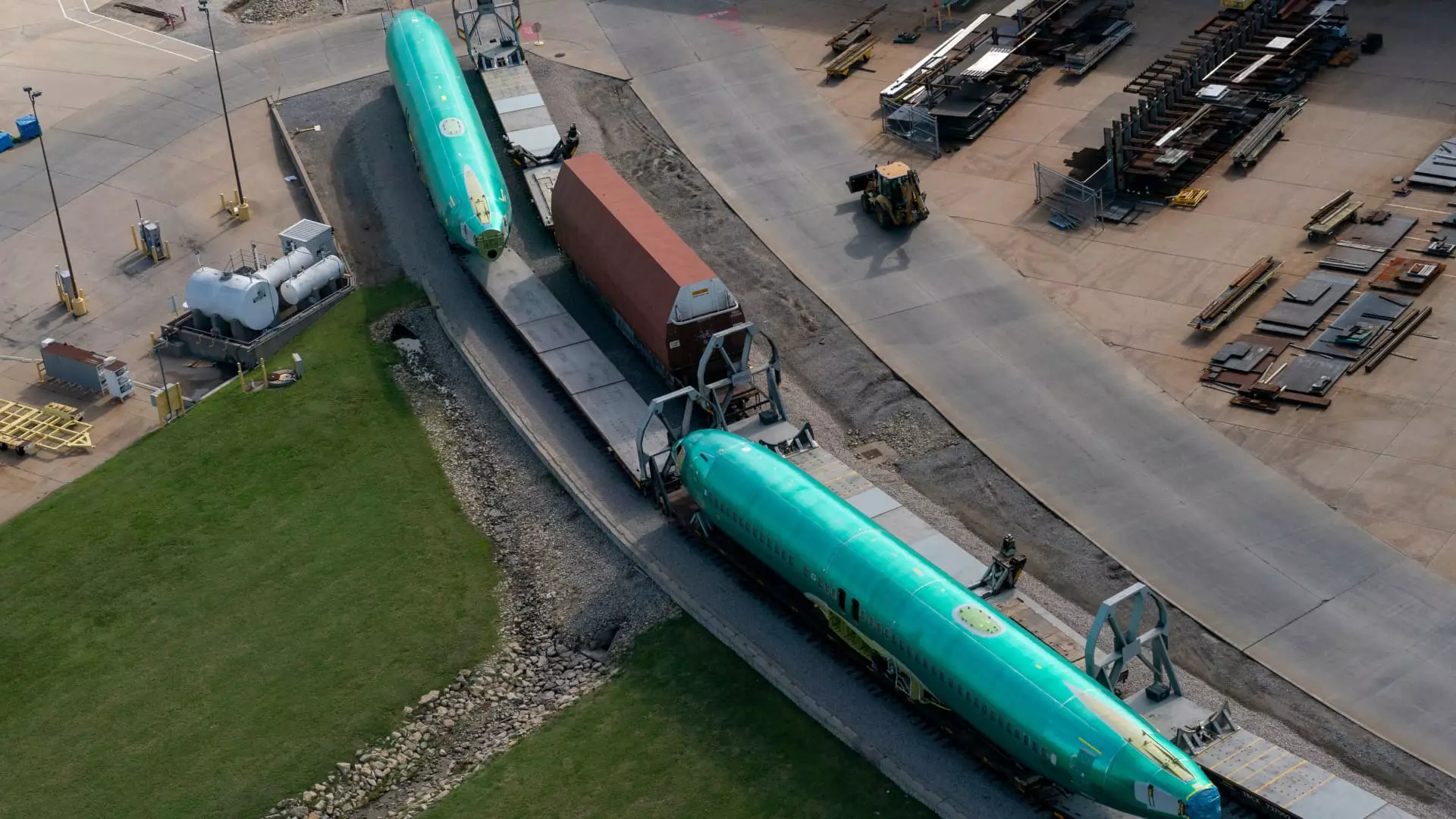Spirit AeroSystems finds itself at a critical junction as the Boeing machinists’ strike continues to linger, casting a long shadow over the aerospace industry. With the strike entering its sixth week and production at Boeing grinding to a halt, the ripple effects are increasingly evident. Reports indicate that Spirit is considering furloughs or even layoffs for hundreds of employees if the situation does not resolve by November 25. This predicament underscores the fragility of the aerospace supply chain, which is still reeling from disruptions caused by both labor disputes and the COVID-19 pandemic.
The dissatisfaction among Boeing’s machinists, exemplified by a 64% rejection of a newly proposed labor contract, highlights deep-rooted issues within the workforce. As these employees escalate their demands, the ramifications extend beyond the manufacturer to its suppliers like Spirit AeroSystems. The ongoing work stoppage has not only complicated production schedules but has also compelled Spirit to prepare for temporary furloughs of approximately 700 workers at its Wichita, Kansas facility. These furloughs serve as a grim reminder of the precarious nature of reliance on a major partner like Boeing, where disruptions at the prime contractor cascade down to suppliers struggling to maintain their own workforce stability.
The financial implications for Spirit AeroSystems are severe. The company recently reported a staggering third-quarter net loss of $477 million, more than doubling losses from the year prior. Such figures evoke concerns about the sustainability of the business if the strike persists and underscores an urgent need for resolution. In this context, the dual challenges of mounting losses and potential layoffs heighten anxiety among employees and investors alike, fostering a climate of uncertainty for the company and its stakeholders.
Compounding these challenges is Boeing’s ongoing acquisition of Spirit AeroSystems, a deal expected to close in the upcoming year. The merger could reshape the dynamics of the supplier-manufacturer relationship but also sends mixed signals during an already turbulent period. Boeing’s new CEO, Kelly Ortberg, has stated that ending the machinists’ strike is a primary concern. There’s an urgency in the air, as the labor union representing the machinists has expressed a willingness to return to negotiations, which could potentially alleviate some strain on the supply chain.
As the situation unfolds, the resolution to the strike is imperative not just for Boeing but for its network of suppliers such as Spirit AeroSystems. It is crucial for all parties involved to engage in constructive dialogue to address labor concerns while simultaneously working to stabilize the supply chain. The gravity of the ongoing situation requires a concerted effort to both rebalance workforce needs and secure the economic viability of the entire aerospace sector. Moving forward, the industry’s resilience will increasingly depend on collaborative solutions that prioritize both employee satisfaction and sustainable business practices.

